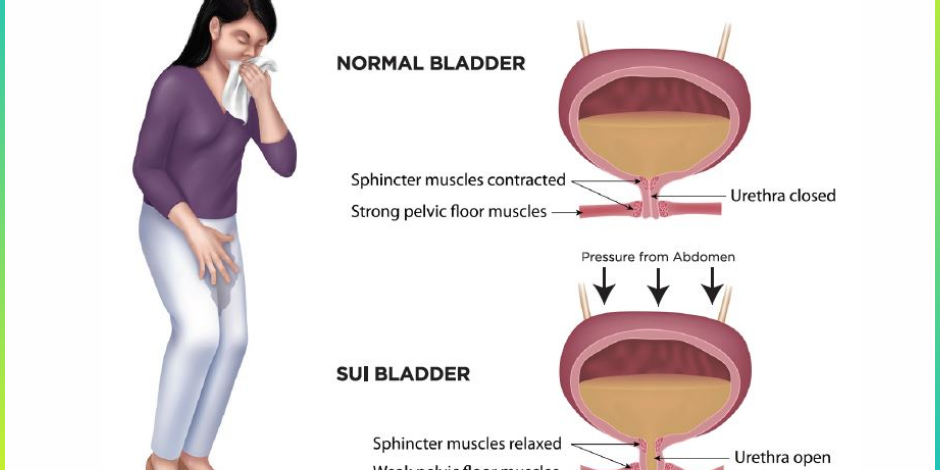SUI affects one in three women over 45 years old. Women most commonly develop SUI from changes that happen in pregnancy or childbirth which weaken the support to the urethra. Chronic coughing, constipation, obesity, aging, smoking, or extreme weight lifting can also cause SUI. Genetics may also play a role.
The bladder walls are made of muscles. As urine flows into the bladder, the walls expand to make room for more fluid, like a water balloon. Sudden pressure caused by activity or “stress” unintentionally pushes urine through the urethra, the tube that carries urine out of the body.
Some women leak occasionally, for example, only with intense exercise, heavy coughing, or when their bladder is very full. Others leak with activities such as walking or laughing. Women may limit physical and social activities to avoid SUI. There is no need to do this-talk to your medical provider about treatments that can make you dry.
Causes of Stress Urinary Incontinence
SUI is primarily caused by a weakening of the pelvic floor muscles and the sphincter muscle that controls the release of urine. These muscles may become weakened or damaged due to:
- Childbirth: Vaginal delivery can stretch and weaken the pelvic floor muscles, leading to SUI. Women who have had multiple pregnancies or difficult deliveries are at higher risk.
- Aging: As women age, the muscles in the pelvic area, including those that control bladder function, tend to lose strength and elasticity.
- Menopause: The decrease in estrogen levels during menopause can lead to a thinning of the urethral and vaginal tissues, further contributing to SUI.
- Obesity: Excess body weight increases pressure on the bladder and pelvic floor, which can weaken these muscles over time.
- Chronic Coughing: Conditions that cause persistent coughing, such as chronic bronchitis or smoking, can strain the pelvic floor muscles and lead to SUI.
- Previous Pelvic Surgery: Surgeries such as hysterectomy can sometimes result in damage to the pelvic floor muscles, increasing the risk of SUI.

